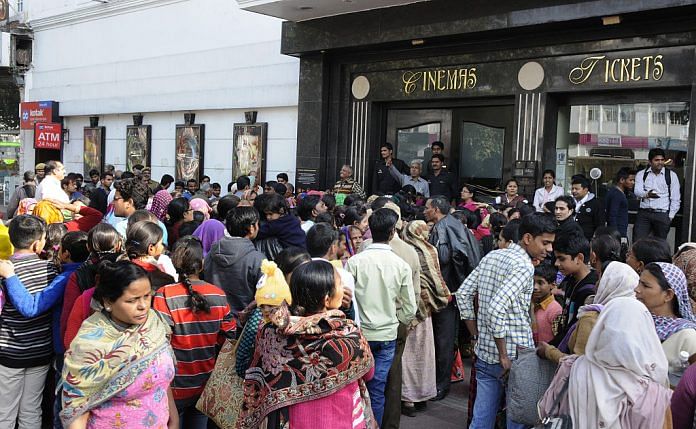While Congress-ruled Punjab is bringing in an ordinance to collect entertainment tax, BJP-ruled Haryana is bringing it in through the assembly, but as a duty.
Chandigarh: The much-touted Goods and Services Tax was introduced across the country on 1 July this year with a catchy tag-line — ‘one nation, one tax’.
But now, less than six months later, Congress-ruled Punjab and BJP-ruled Haryana have both decided to re-impose entertainment tax, and that too, through the back door.
Punjab circumvents assembly
The Punjab cabinet Wednesday approved bringing in an ordinance to empower municipalities and panchayats to collect entertainment tax in the areas under their jurisdiction. The ordinance is called ‘The Punjab Entertainments & Amusements Taxes (Levy & Collection by Local Bodies) Ordinance, 2017’.
To begin with, the tax will be imposed only on ‘TV watching’, through companies providing direct-to-home connections (DTH) and through cable TV network providers. Initially, the rates have been fixed at a nominal Rs 5 per DTH connection and Rs 2 per local cable connection per month.
For now, no entertainment tax has been proposed on cinemas, multiplexes, amusement parks, and other similar places providing facilities for entertainment and amusement.
Asked why the government had chosen to ‘double tax’ TV network providers (over and above GST), A. Venuprasad, Punjab’s principal secretary for urban local bodies, said: “The charges levied are nominal, and while these will get some revenue to the local bodies, it is not going to be much for the companies.”
The move is expected to generate an annual income of around Rs 45-47 crore for urban local bodies and panchayats in the state. Of this, about Rs 10 crore would accrue on nearly 16 lakh DTH connections, and approximately Rs 35-37 crore on 44 lakh cable connections across the state.
Haryana to levy entertainment duty
In Haryana, the cabinet had, as early as 25 July, approved the introduction of the ‘The Haryana Municipal Entertainment Duty Bill, 2017’. This duty would be levied on admission to public entertainment, and be collected by urban local bodies.
The draft bill has not yet specified on which entertainment facilities the duty will be imposed. However, a spokesperson for the government said the duty would be uniform across the state.
“The proposal has the nod of the chief minister. The bill is to be moved in the next session of the assembly,” said Anand Mohan Sharan, Haryana’s principal secretary for urban local bodies.
Old tax vs new
Entertainment tax in Punjab and Haryana was earlier collected by the states’ excise departments, under the provisions of the Punjab Entertainment Duty Act, 1955. This was levied on TV network companies, cinemas and multiplex tickets, amusement park tickets, entertainment shows, sports events etc, unless specifically exempted.
In Punjab, DTH companies had to pay 25 per cent of the total collection from their subscriber base. From the cable companies, the state excise department charged a lump sum of Rs 15,000 annually, irrespective of the subscriber base.
Haryana charged a 30 per cent entertainment tax on movie tickets.
Apart from this entertainment tax which went into the states’ kitty, an additional 15 per cent service tax was also levied on entertainment facilities, which was collected by the Centre.
After the implementation of GST on 1 July 2017, the states’ entertainment tax was subsumed into GST. TV network providers (both DTH and cable) are now taxed 18 per cent GST. Movie tickets less than Rs 100 also attracted 18 per cent GST, while and tickets over Rs 100 are charged 28 percent GST.
The GST collected under the entertainment head is shared equally by the Centre and the state. However, the old entertainment tax (ranging from 10 to 30 percent from state to state) was entirely the state’s own revenue, which is now lost. This is why these two states have re-imposed the tax in different forms through their local bodies.
Local bodies empowered
The power of levying entertainment tax has now been conferred on urban local bodies and Panchayati Raj institutions, through amendment to entry 62 of the State List to the 7th Schedule of the Constitution of India.
Following the imposition of GST, Tamil Nadu had proposed the collection of an additional 30 per cent entertainment tax through its urban and rural local bodies. However, the state government had to keep the tax in abeyance, following strong protests from cinema and multiplex owners.
The Chennai municipal authority then imposed a 10 per cent entertainment tax, which was later reduced to eight per cent.



